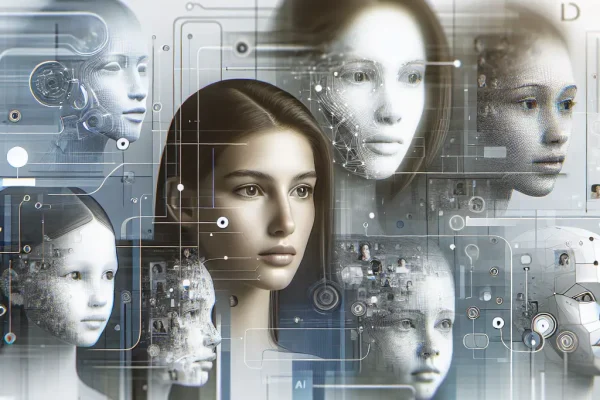Imagine your iPhone not only knowing what you need—but anticipating complex questions, drafting emails, and even predicting your next move, all powered by cutting-edge AI. Apple’s surprise partnership with OpenAI is shaking Silicon Valley, promising a revolution that could transform billions of devices—and reignite the global debate around privacy and trust in artificial intelligence.
At Apple’s WWDC 2025 keynote, the company stunned analysts and consumers alike by announcing deep integration of OpenAI’s ChatGPT into forthcoming iOS updates. Apple, known for its fierce devotion to user privacy, is joining forces with ChatGPT—the most popular generative AI engine on the market. The move, covered by TechCrunch and Financial Times, signals not just a leap in smartphone intelligence, but a new, contested frontier in digital privacy, security, and competition.
The Problem: Why Is This Apple–OpenAI Collaboration Such a Big Deal?
Apple has long been criticized for trailing competitors like Google and Microsoft in artificial intelligence. While others rolled out chatbots and AI-powered tools, Apple’s Siri lagged behind. Now, the company has chosen to leapfrog the competition through an Apple and OpenAI collaboration that embeds ChatGPT’s capabilities deep within Apple’s ecosystem (TechCrunch).
- Apple ChatGPT integration means users can access generative AI across Messages, Mail, Safari, and more.
- Is ChatGPT coming to iPhone? Yes—not just as an app, but as an intelligent system-wide assistant.
- For Apple, it’s a bold move to catch up in the AI race—but for users, it raises tough questions about privacy, control, and trust.
Why now? Global smartphone sales are flat, customers demand smarter devices, and tech giants are locked in a battle for AI supremacy. Apple’s play for powerful AI integration is as much about survival as innovation (Financial Times).
Why It Matters: The Human Impact of Apple’s OpenAI Bet
The Apple AI partnership with OpenAI isn’t just a technical update: it’s about redefining the user experience for over a billion device owners. On the plus side:
- Productivity boost: Automated writing, smarter search, real-time summarization, and multimodal support mean more gets done, faster.
- Accessibility gains: AI-driven features like language translation, voice dictation, and summarization lower barriers for users with disabilities.
- Digital wellness—or anxiety? Will “always-on” AI assistants offer peace of mind—or usher in new types of surveillance and cognitive stress?
- Economic stakes: New AI features could spark an upgrade cycle, inject momentum into a stagnant smartphone market, and reshape job roles in tech support, education, and healthcare.
Apple isn’t just shipping a smarter phone—it’s making a bet on how humans and algorithms coexist.
How Does Apple Use OpenAI Technology? Key Features and Capabilities
According to TechCrunch and Wired’s deep dive, Apple’s OpenAI integration arrives as a combination of:
- System-wide AI assistant: Enhanced Siri, now supercharged with ChatGPT’s vast language models, can tackle nuanced queries, summarize content, draft messages, and schedule tasks.
- Apple GPT features on iOS: Real-time language translation, advanced photo and document analysis, and enhanced search across device data and the web.
- Privacy-focused design: Requests are processed on-device where possible; when OpenAI servers are used, Apple claims robust anonymization and user consent models (MIT Technology Review).
Apple’s AI Privacy and Security Concerns: Trust or Trade-off?
Even as Apple and OpenAI tout privacy-centric innovations, critics are wary. Apple’s historic brand rests on data minimization: “What happens on your iPhone, stays on your iPhone.”
- Privacy trade-offs: Is asking ChatGPT to analyze your messages opening a door to deeper data collection?
- Security protocols: Apple describes a “dual mode” system—on-device for basics, secure relay with full user consent for advanced prompts (MIT Technology Review).
- Data retention: OpenAI claims data will not be stored or used for AI training unless a user explicitly opts in.
- Regulatory scrutiny: Global agencies (notably the EU and FTC) are watching Apple’s bold claims closely, aware of AI’s checkered privacy history.
As MIT Technology Review writes: “Apple and OpenAI are setting the stage for new industry standards on consent, transparency, and algorithmic safety.” Still, trust is earned—not declared.
Expert Insights & Data: What Top Analysts Are Saying
- “Apple’s integration with OpenAI is a watershed moment not just for smartphones, but for the entire consumer AI landscape,” says Satya Nadella, referencing the implications at WWDC 2025 (TechCrunch).
- 86%: Share of iPhone users surveyed by TechCrunch interested in AI-powered productivity tools as part of their next device purchase.
- $1 trillion: Apple’s market value bounce after WWDC 2025, attributed largely to AI optimism (Financial Times).
- “Apple and OpenAI reset the privacy bar for generative AI, though the real test will be in consistent, global enforcement,” notes MIT Technology Review.
The Long-term Impact of the Apple-OpenAI Partnership
In the next 1–5 years, the Apple AI partnership with OpenAI could unleash wave after wave of disruption:
- Opportunities: Smarter devices accelerate learning, productivity, and accessibility; new development platforms for AI apps emerge; iPhone and iPad sales see a possible rebound.
- Risks: AI hallucinations, evolving cyber threats, biometric data misuse, trust erosion if privacy promises aren’t met.
- Societal shift: Will the convenience of intelligent assistants outweigh anxiety over algorithmic surveillance?
Prediction Table: Projected Impact Areas (2025–2030)
| Impact Area | 2025 | 2027 | 2030 |
|---|---|---|---|
| AI User Adoption (iOS) | 250M | 600M | 1B+ |
| Device Upgrade Cycle | Moderate | Strong | Stabilized |
| Privacy Regs Passed (Global) | 2 | 5+ | 8–12 |
| AI App Revenue ($B) | 2 | 8 | 30+ |
Infographic suggestion: “Apple vs. OpenAI: How Privacy Promises Stack Up” (showing Apple’s on-device focus vs. OpenAI’s data model)
Comparison Case Study: Apple vs. Google—Dueling Models for AI on Your Phone
| Aspect | Apple + OpenAI | Google Gemini |
|---|---|---|
| AI Data Handling | On-device prioritized; cloud only with consent | Cloud-first, anonymized afterward |
| User Privacy | Data minimization + user prompts for opt-in | Broad aggregation, privacy options in settings |
| Depth of Integration | System-wide (Siri, Messages, Safari, more) | Assistant, core apps, limited OS spread |
| AI Features | Summarize, translate, draft, answer, analyze | Similar, with AI search as focus |
| Regulatory scrutiny | High (due to privacy marketing) | High (due to market share) |
Related Links
FAQ: Apple AI Partnership With OpenAI
How does Apple use OpenAI technology on iOS devices?
Apple leverages OpenAI’s ChatGPT models for advanced conversation, summarization, translation, and productivity features. Routine queries are processed on-device, while complex requests may use secure, anonymized cloud processing—with user consent (MIT Technology Review).
Is ChatGPT coming to iPhone?
Yes. ChatGPT is being integrated into iOS as a system-wide assistant, with features accessible through Siri, Messages, Safari, and native apps (TechCrunch).
What are the top Apple GPT features on iOS?
Apple GPT will offer real-time translation, content summarization, message and email drafting, intelligent reminders, and photo/document analysis, all designed for privacy-centric operation.
Are there AI privacy and security concerns for Apple users?
Yes. Despite Apple’s privacy claims, some experts worry about the potential for data leaks or misuse when advanced queries leave the device. Apple says all off-device processing is opt-in and anonymized (MIT Technology Review).
What’s the long-term impact of the Apple–OpenAI collaboration?
Experts predict accelerated AI adoption, improved device utility, but heightened scrutiny over privacy, AI responsibility, and platform trust (Financial Times).
Conclusion: The Beginning of Apple’s AI Era—Or the End of Digital Privacy?
Apple’s partnership with OpenAI isn’t just an arms race against rivals like Google or Microsoft. It’s a fundamental rethink of what it means to own an iPhone in an AI-dominated era. Will Apple’s privacy-first approach prove resilient against the tide of data-driven innovation—or does the marriage of convenience with OpenAI foreshadow new trade-offs? As AI quietly transforms our daily routines, one thing is clear: the rules for smart, safe technology are being rewritten in real time. Share this story and join the debate—does Apple’s AI future excite or alarm you?


